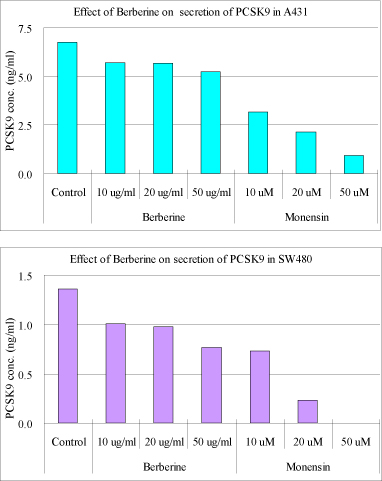CircuLex Human PCSK9 ELISA Kit
The CircuLex Research Product Human PCSK9 ELISA Kit is used for the quantitative measurement of Human PCSK9 in serum, plasma, cell culture medium and other biological media. It can be used for 96 Assays.
Target: PCSK9
Product Type: ELISA Kit
Application: ELISA
Species Reactivity: Human
Research Area: Metabolism
Description/Background: PCSK9 (also known as neural apoptosis-regulated convertase, NARC-1) is a 692-residue extracellular protein expressed primarily in the kidneys, liver and intestines (1) representing the 9th member of the secretory subtilase family. Various genetic observations subsequently mapped PCSK9 as the third gene (along with LDLR and APOB) to cause autosomal dominant hypercholesterolemia (ADH). These studies suggested that gain of function mutations increase plasma levels of LDL-c (2–6), whereas nonsense or missense (loss-of-function) mutations, which interfere with folding or secretion of PCSK9, lead to a reduction of plasma levels of LDL-c and an 88% decrease in the risk of coronary heart disease (CHD) (5). In mice, adenoviral overexpression of PCSK9 results in increased plasma LDL-c level in normal mice but not in LDLR-deficient mice (7). Deletion of PCSK9 causes an increase in level of LDLR protein but not mRNA (8). These findings lead to a hypothesis that PCSK9 exerts its role in cholesterol metabolism through posttranslational down-regulation of LDLR, the receptor responsible for clearing LDL-c from plasma. Evidence is consistent with the secreted form of PCSK9 binding directly to the LDLR and resulting in degradation of the receptor (9, 10). Zhang et al. (11) localized the binding site of PCSK9 in the LDLR to the first epidermal growth factor-like repeat (EGF-A) of the extracellular domain and showed that PCSK9 binding to this site is required for LDLR degradation. In light of these observations and the fact that PCSK9 in the circulation may cause the degradation of hepatic LDLR in the liver, PCSK9 would seem to be an attractive drug target for lowering LDL-c.
Protocols: ELISA
Sensitivity: better than 0.154 ng/ml of sample.
Measurement Range: 0.16 - 10 ng/mL
Regulatory Statement: For Research Use Only. Not for use in diagnostic procedures.

Related Product
For Research Use Only, Not for use in diagnostic procedures